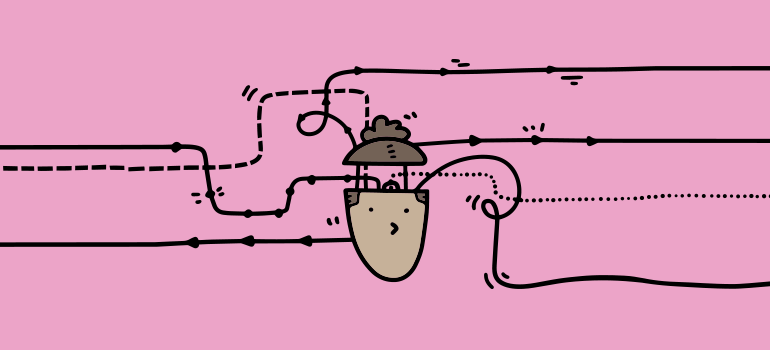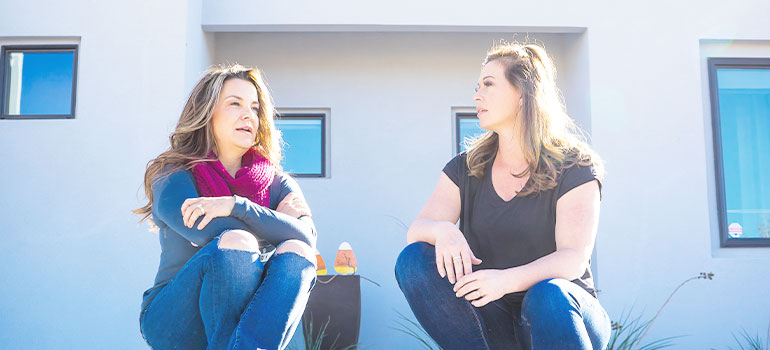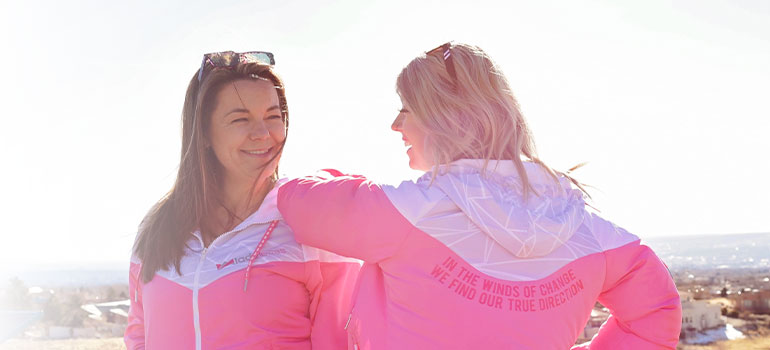So, my Dear, you want to make some changes in your life? Is your goal to exercise more, to eat healthier, to lose weight, or all of the above? No matter your goal, changes in your life are going to require changes in your behavior. Now, let’s gauge how willing and committed you are to changing habits!
We’re going to use the Transtheoretical Model of Behavior Change (TTM), introduced in the late 1970s by researchers James Prochaska and Carlo DiClemente. I know, I know, the long title and hard-to-pronounce names come across as really sciencey and technical. But the concepts are quite simple, and I know that you will recognize yourself in the Stages of Change described below. This model doesn’t only help us understand the process of habit-forming, it also gives insight about how to change habits.
Overview of the Transtheoretical Model
According to ProChange, the TTM utilizes key pieces from other well-established theories to create a comprehensive theory. This makes the model applicable to a variety of behaviors, populations, and settings—hence, the name Transtheoretical.
We will focus on the following constructs here in this article:
- The Stages of Change
- Decisional Balance
- Self-Efficacy
- The Processes of Change
 Stages of Change
Stages of Change
We all recognize that changing habits isn’t as simple as—*Poof* I exercise every day now! It’s a process that requires an evolution of thought processes and behaviors over time. The Stages of Change breaks down this evolution.
Precontemplation (Not Ready)
This is a stage of ignorance or ambivalence. A person in this stage has bad habits but doesn’t even realize that changes need to be made. Sometimes they simply don’t care. They’re content with the way things are. As you are here reading this article, I think it’s safe to assume that you’ve moved beyond the stage of Precontemplation.
Contemplation (Getting Ready)
Perhaps you’re in the stage of Contemplation. You’re at a point when you’re beginning to consider making a change. You’re beginning to realize that things can’t continue on with the way they’re going. You may have many obstacles that are keeping you from making any big changes right now, but change is definitely on your mind.
According to VeryWellMind.com, many people never make it past the contemplation phase. But, that’s not you, LadyBossⓇ. You got this!
Preparation (Ready)
When you’re ready, you’re determined. You’ve decided with gusto that you’re going to make some changes. You have reached the stage of preparation. This stage includes physical and mental preparation to take action.
Shatterproof.org suggests that this is a good stage to start making some SMART goals about your fitness, nutrition, and weight-loss. SMART goals are:
Specific: What exactly are you going to do?
Measurable: How can you prove you’ve met your goal?
Achievable: Are you physically able to do this without harming your health?
Realistic: Do you believe you can do this?
Time-based: When will you start specifically, and what’s your deadline?
Action
This stage is where all of the action takes place! You are making changes!! You’ve gone beyond thinking, preparing, and planning, and you are actively changing habits—regularly exercising, eating healthy, and losing weight.
Maintenance
The stage of maintenance is where you demonstrate your true commitment to making your behavior change permanent. This is not to say that the changed behavior becomes easy. It will take persistent work, effort, and a plan of action.
I love this metaphor from ShatterProof.org: When you build a house, you create the foundation, build the structure, install plumbing, and add a roof. But the work doesn’t stop when you move into your finished house. The house will require continuous maintenance and updates—cleaning, painting, replacing, repairing, etc.
Relapse
Research shows that relapse is the rule rather than the exception in changing your health behaviors. Relapses are normal and can be important learning experiences in helping you grow and in strengthening your resolve to change. If you can accept that you are likely to relapse and give yourself grace for your imperfections, you are less likely to make a relapse a trigger for giving up.
 Decisional Balance
Decisional Balance
Ugh, change is so hard! It’s natural to weigh the pros and cons of remaining the same or adopting new behaviors. This weighing-out process is known as Decisional Balance.
As you progress through the Stages of Change your decisional balance will shift. In the stage of precontemplation, the positives gained from changing habits do not yet outweigh the positives of staying the same. In the contemplation stage, the balance is pretty equal. The balance is not yet tipped enough to motivate behavior change. Once you realize the benefits of changing outweigh those of remaining the same, change can finally occur. Soon, progression to the stages of preparation and action take place.
The following is an example of a decisional balance toward exercising more:
 Self-efficacy is our own judgment about how well equipped we are to deal with certain situations. Let’s stick with the example of exercise as we move into the construct of Self-Efficacy.
Self-efficacy is our own judgment about how well equipped we are to deal with certain situations. Let’s stick with the example of exercise as we move into the construct of Self-Efficacy.
Self-Efficacy
We all gotta start somewhere, and it’s awkward to take on a new behavior that you don’t feel confident in. So, let’s learn about self-efficacy. Albert Bandura is our man. Below are his ideas on promoting self-efficacy.
Before we get there, though, I want you to know that a personal trainer or a coach can exponentially speed up the competence process. Their professional feedback is invaluable. I can’t say enough how much I love my job as a LadyBossⓇ Personal Results Coach. Do yourself a favor and check out the LadyBossⓇ Personal Results Coaching Program! If a trainer or coach is not in the cards for you right now, no problem. You can still build self-efficacy with persistence on your own:
- Visualize success, maintain a positive attitude, and practice mindfulness.
Your emotional and physiological experience will paint or taint how you feel about exercise. Start small. Start slow. And, stay positive in your self-talk! Be mindful about how exercise makes you feel. Those endorphins really do make you happier!
- Filter out the negative comments and focus on those that build you up.
Social persuasion refers to how the commentary of others will either build your sense of competence or bring it down. Mean people suck, and they suck your feelings of self-worth. Don’t give them that power over you! Take the compliments and encouragement to heart!
- Watch the success of others like you.
Vicarious experience says if they can do it, you can do it too. Sure, you can gain inspiration from the celebrities and models and fitness divas of Instagram. However, you’re more likely to gain feelings of competence and inspiration to exercise from those that are closer to your level of experience and have a more relatable lifestyle.
- Do the darn thing!
The best way to gain competence is through personal experience. You may be saying to yourself, “But I don’t have the motivation to do it. I don’t feel like it. Wah.” Let me be blunt. I don’t care how you feel. (I actually really do, but I gotta be tough on ya to get this point across.) Get out of your head, off of your butt, and DO IT! This is where Mel Robbin’s Five-Second Rule needs to become a model for your life. Count back from five… 5, 4, 3, 2, 1 and just do the darn thing!
 Processes of Change
Processes of Change
Knowing about the Stages of Change, Decisional Balance, and Self-Efficacy can be helpful. But the focus on progressing through the stages toward maintenance. The Processes of Change are the steps to take. You’ll notice that some of the actions take place in your brain before they become actions in your lifestyle. Now let’s learn how to break a habit or two and gain a new lasting, healthy lifestyle!
- Consciousness Raising (Get the Facts): Start to gain awareness about the health-damaging effects of your current behaviors.
- Dramatic Relief (Pay Attention to Feelings): Pay attention to the anxiety and negative feelings associated with your current behaviors and the relief that you would gain if you changed.
- Environmental Re-evaluation (Notice Your Effect on Others): Recognize how your current health behaviors affect those around you, especially if you have people looking up to you as an example.
- Self Re-evaluation (Create a New Self-Image): Assess how you view yourself with your current health behaviors. Do you feel pride? Do you feel shame?
- Social Liberation (Notice Public Support): Recognize that friends, family, and community groups are ready to support you in your health journey.
- Self Liberation (Make a Commitment): Create a commitment contract. Believe in yourself and your abilities to change enough to commit!
- Counter Conditioning (Use Substitutes): Do you know how to break a habit? Substitute healthy behaviors for bad habits. Kaelin created this free healthy swaps blueprint for that specific purpose. Instead of eliminating the foods you love, replace them with healthier options.
- Helping Relationships (Get Support): Be vulnerable in allowing others to support you in your health journey. The LadyBossⓇ Community is on one of the best social support systems available! Try out the LadyBossⓇ Lifestyle and experience the one-of-a-kind LadyBossⓇ Community for free with a seven-day trial!
- Reinforcement Management (Use Rewards): Reward yourself, Girl! Get a facial, buy a new dress, take a trip. Use extra incentives to keep up with your new healthy behaviors. Every little baby step in the right direction is progress and deserves to be recognized.
- Stimulus Control (Manage Your Environment): Your bad habits tend to have a cue, meaning they usually take place in response to certain times, places, people, or situations. Remove cues for unhealthy behaviors and add cues that support the adoption and maintenance of healthy behaviors.
Conclusion
I’d like to conclude with this powerful quote from Will Durant: “We are what we repeatedly do. Excellence, then, is not an act, but a habit.”
You are powerful, LadyBossⓇ. And your power comes from your daily choices and the habits you create.
If you’re not yet sure where to start on your health and weight-loss journey, check out the LadyBossⓇ Pocket Personal Trainer. It can help you in your fitness and nutrition pursuits while giving you all of the accountability you need to change your habits and ultimately change your life!




















